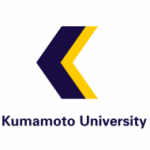日本語 English
■調査期間 : 2024年7月1日(月曜日)10時00分~10月31日(木曜日)23時59分
■回答のまえに
このアンケートでは、本学が学生に発行しているメールアドレス(学生番号@st.kumamoto-u.ac.jp)を入力します。予め、ご自身のメールアドレスを確認し、受信メールを確認できる状態にしてください。
*メールアドレスを入力しても、アンケート以外の目的で使用されることはありません。
アンケートを回答する前に、ぜひ「学修成果可視化システムASO」 でご自身のこれまでの学修成果を振り返ってみてください。
■回答の方法
以下のURLからTHE日本大学ランキング2025「学生調査」専用のアンケートサイトに入り、回答してください。PC、スマートフォン、タブレットでの回答が可能です(ただし、大学発行のメールアドレスで受信できるものに限る)。回答所要時間は約7分です。
THE日本大学ランキング2025「学生調査」アンケートサイトURL:
https://benesse-the.my.salesforce-sites.com/studentsurvey/survey?id=a06GA00001IPMdHYAX&lang=jp
■注意事項
- 回答途中での保存はできません。最後まで回答してください。万が一、途中でアンケートサイトを離れた場合は、最初から回答し直してください。
- アンケート回答後の変更は、システム上できません。
- アンケート回答後に、あなたが記入した本学発行のメールアドレス宛に確認メールが送られます。この確認メールに記載された手順に従って回答の登録を完了させてください。アンケートに回答するだけでは、回答の登録が完了しませんので、必ず確認メールを開封してください。
- 登録完了が行われない場合、有効回答とはなりません。過去はこの操作が行われなかったために、残念ながら無効となった回答が多数発生しました。
※確認メールが受け取れるよう、大学発行のメールアドレスで事前に受信設定(「@mail.benesse.co.jp」のドメイン受信許可設定・受信拒否設定解除)を確認してください。 - 回答は「1人につき1回」です。1度回答したメールアドレスを使って、重複回答はできません。
回答の前にご一読ください
アンケートで問われている取組について
熊本大学では、学士課程教育を通じて獲得できる学修成果として以下の7つの学修成果を「全学部共通の学修成果」及び「教育プログラム(学科・コース)」ごとに定めています。学生の皆さんは、様々な授業(講義、演習、実習、実技、実験 等)の履修や、専門分野の研究、様々な課外活動等を通して、卒業までにこれらの学修成果を身に付けていくこととなります。
【例】
「協同学習(協働学習)」・・・授業でのペアワークやグループワーク、実験・実習や実地調査、ときには学外の方々との活動など
「クリティカル・シンキング(情報を抽出し吟味・分析し、論理的に組み立てて表現したりする力)」・・・授業で蓄積した知識を基にした学生間での議論や、課題研究・卒業論文の過程や最終発表会での質疑・応答等の機会によって磨き上げられるもの。
⇒その成果として、
| 創造的な知性 自分で課題を発見し、解決のために必要な調査・研究及び実践に個人やチームで取組み、その成果を論理的に発表・討議する能力を持っている。 |
を身に付けることとなります。
ご自身の学修成果は「学修成果可視化システムASO」で確認できます。その他、以下の「7つの学修成果」、教育課程編成・実施の方針(CP)、各学部の便覧、シラバスなどを参照され、学修成果を身に付けるための「機会」を確認し、アンケートに回答ください。
熊本大学 学士課程教育に期待される学修成果
豊かな教養
教養ある社会人に必要な文化・社会や自然・生命に関する一般的知識を身に付け、異なる思考様式を理解し知を高めていく主体的な学修態度が備わっている。
確かな専門性
自らの専門分野の理論・概念や方法論に関する基本的知識を身に付け、当該分野の情報・データを活用し、問題解決のために応用できる。
創造的な知性
自分で課題を発見し、解決のために必要な調査・研究及び実践に個人やチームで取組み、その成果を論理的に発表・討議する能力を持っている。
社会的な実践力
社会に対する幅広い関心を持ち、人々や社会との関わりの中で自分を見つめ、市民や職業人として必要なコミュニケーション能力、倫理観を身に付け、将来進むべき道を探索し、社会に貢献する意欲を持っている。
グローバルな視野
国際社会に積極的に参加するために必要な外国語運用能力と異なる価値観や文化に対する理解力を持ち、国際感覚を身に付けている。
情報通信技術の活用力
社会生活に求められる情報通信技術(ICT)を活用するために必要な知識・技能・倫理を身に付けている。
汎用的な知力
あらゆる専門分野や社会生活の基盤として求められる読解力、文章表現力、数的処理能力を身に付けている。
教育プログラム毎の7つの学修成果は以下のリンクの「3ポリシー」から確認ください。
https://www.kumamoto-u.ac.jp/kyouiku/curriculum
English
Requesting Participation in Student Survey for THE Japan University Rankings 2025
Effective Date: From July 1, 2024 (Monday) 10:00 to October 31,2024 (Thursday) 23:59
・What personal information is being asked in the survey?
In this survey, you will be asked for your university issued email address (Student-ID@st.kumamoto-u.ac.jp). Please make sure the email address is correct as you will receive a verification email to confirm you are eligible to take part in the survey.
* Even if you enter your e-mail address, it will not be used for any purpose other than questionnaires.
Before completing the survey, please take a moment to review your past academic achievements using the ASO system.
・How do I participate in the survey?
Provide us with your honest feedback now by clicking / reading the link below. You can answer the survey through your PC, smartphone, and tablet (limited to devices which can receive emails to your university issued email address). It takes about 7 minutes to complete the survey questions.
Please make sure to complete the survey by following the instructions given in the email. Note that the survey will NOT be completed just because you answered it.
If you do not complete this process, your data will NOT be accepted as valid. We observed many data were discarded-as invalid.
Please make sure to configure your spam filter policies with your university-issued email in order to receive the verification email from the domain “@mail.benesse.co.jp”
You are allowed to respond once to the survey. Using the same email address to make multiple responses is not an option.
https://benesse-the.my.salesforce-sites.com/studentsurvey/survey?id=a06GA00001IPMdHYAX&lang=jp
Please read before answering
About the efforts asked in the questionnaire
Kumamoto University has established the following seven learning outcomes for all faculties and each educational program (department/course) as learning outcomes that can be acquired through bachelor course education. Students are expected to acquire these learning outcomes by the time of graduation through various classes (lectures, exercises, practical training, practical skills, experiments, etc.), research in specialized fields, and various extracurricular activities.
Examples
Cooperative learning (collaborative learning): Pair and group work in class, experiments, practical training, field research, and sometimes activities with people outside the university.
Critical thinking (the ability to extract, examine, and analyze information, and to construct and express it logically): This is honed through discussions among students based on knowledge accumulated in class, and through question-and-answer sessions in the process of assigned research and graduation theses and at the final presentation.
As a result
| Creative intelligence The ability to discover issues on one’s own, conduct the research and practice necessary to solve them as an individual or in a team, and present and discuss the results of that research and practice in a logical manner. |
Will be learn this.
Please refer to the “Seven Learning Achievements” in the Kumamoto University Graduation Certification and Degree Conferral Policy (DP).
・You can check your own learning outcomes on the “ASO” (Academic Achievement Visualization System). In addition, please refer to the following “Seven Learning Outcomes”, Curriculum Policy (CP), each faculty’s handbook, syllabus, etc., and check the “opportunities” to acquire the learning outcomes, and answer the questionnaire.
Expected learning outcomes for bachelor’s degree education at Kumamoto University
A rich liberal arts education
Students will acquire the general knowledge of culture, society, nature, and life necessary for an educated member of society, and will have a proactive attitude toward learning that allows them to understand different ways of thinking and to enhance their knowledge.
Solid expertise
Acquire basic knowledge of the theories, concepts, and methodologies of their field of specialization, and be able to utilize and apply information and data from that field to solve problems.
Creative intelligence
The ability to discover issues on one’s own, conduct the research, investigation, and practice necessary to solve them as an individual or in a team, and present and discuss the results in a logical manner.
Social practical ability
Students will have a broad interest in society, look at themselves in relation to people and society, acquire the communication skills and sense of ethics necessary for citizens and professionals, and have the desire to contribute to society by exploring the path they should take in the future.
Global perspective
Students possess the foreign language skills and understanding of different values and cultures necessary to actively participate in the international community, and have an international outlook.
Ability to utilize information and communication technology
Acquire the knowledge, skills, and ethics necessary to utilize information and communication technologies (ICT) required for social life.
General intelligence
Students acquire the reading comprehension, written expression, and numerical processing skills required as a foundation for all specialized fields and social life.
Please check the 7 learning outcomes for each educational program from “3 Policy” in the link below.
